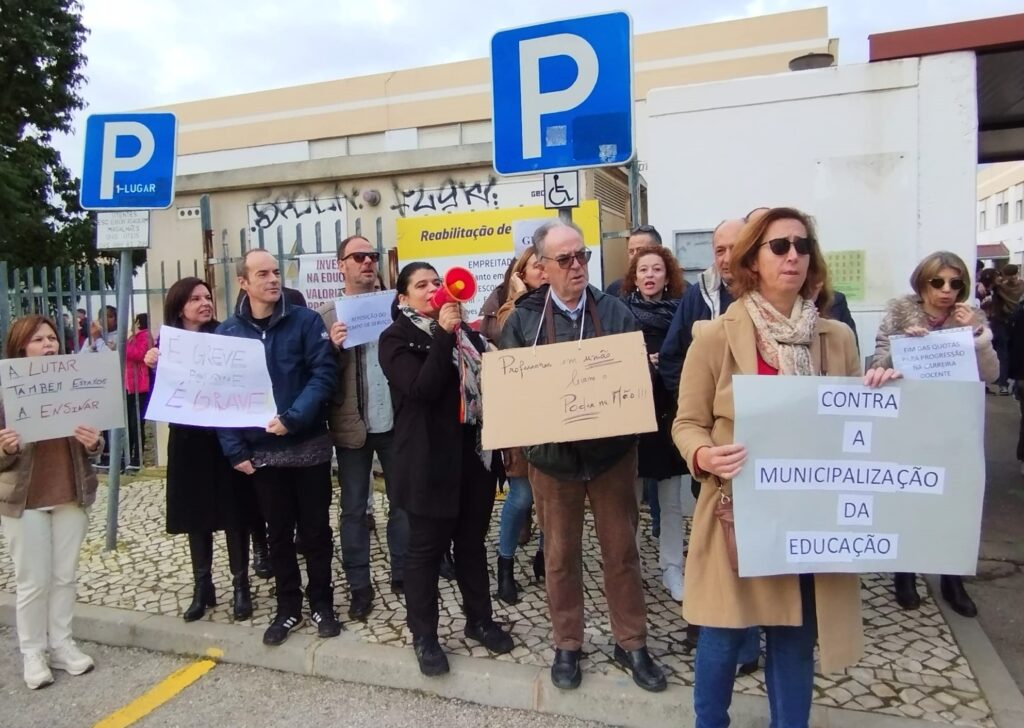Teachers will have to guarantee three hours of classes per day between February 16 and 24, dates on which strikes called by the Union of All Education Professionals (STOP) are scheduled, according to the decision of the Arbitration Court.
In the judgment dated Friday and to which Lusa had access today, the Arbitration Court decided that pre-school and 1st cycle teachers of basic education must “provide three educational hours a day with an end in the meal period ”.
Teachers in the 2nd and 3rd cycles of basic and secondary education also have to “provide three teaching periods per day per class, ensuring weekly coverage of the different subject areas/subjects/training components of the curriculum”.
The Arbitral Tribunal recalled that the “workers' representatives must designate the workers who are assigned to the provision of the aforementioned services (…) up to 24 hours before the start of the strike period and if they do not do so, the public employer must proceed with this designation”.
In justifying the decision, the referees point out the inequalities between public and private education and the fact that the assessments of the 2nd academic period must be completed by March 31st.
“The effect caused by the teachers' strikes reached a point where the non-fixing of minimum services jeopardizes the satisfaction of imperative social needs”, they stress.
However, the decision to set minimum services was not unanimous, with the workers' representative in the arbitration college voting unsuccessful, considering that, at this moment, it is still not possible to say, undoubtedly, that the accumulated effect of these strikes has already reached the point where with regard to the teaching activity in which the non-establishment of minimum services jeopardizes the satisfaction of imperative social needs”.
Speaking to Lusa, the chairman of the board of the National Association of Directors of Public School Groups (ANDAEP), Filinto Lima, said that this decision has not yet been communicated by the Ministry of Education.
“Right now, the parties are in a total war and use the weapons they have at their disposal, the unions use strikes and demonstrations and the Ministry of Education uses the minimum services”, he said.
Saying that he wants “peace and the resolution of problems”, Filinto Lima assumed that he still “does not see the light at the end of the tunnel” so that the parties can understand each other.
In his opinion, this fixation of minimum services will not calm down the schools, but rather “spur” the teachers' fight even more.
Teachers are "sad, upset and unhappy" with the problems that are not new, stressed the president of ANDAEP, adding that their resolution was being "pushed with the belly" over the years.
Filinto Lima also underlined that in the negotiations there must be compromises on both sides, not admitting “fundamentalisms, extremisms and taboo subjects” at the negotiating table.
Thousands of teachers started today at around 15:20 pm to walk down Avenida da Liberdade, in Lisbon, towards Terreiro do Paço, demanding “respect”, in a march led by Fenprof’s general secretary, Mário Nogueira.
The demonstration is called by Fenprof, which expects the presence of around 100 thousand people, but also counts on the participation of the National Federation of Education (FNE) and seven other trade union organizations, as well as the Association of Officers of the Armed Forces and representatives from PSP.
The Union of All Education Professionals (STOP), which still has a strike going on in schools, is not part of the organizers, but was also present.



















Comments